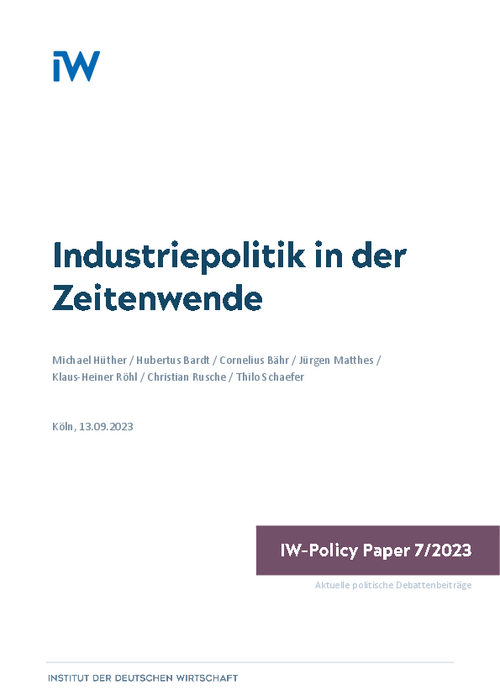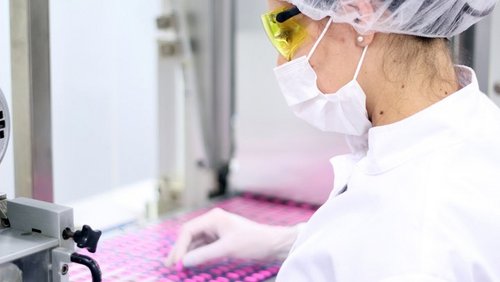The current debate on industrial policy vacillates between the extreme positions of an orthodoxy of rejecting state action and a naive belief in the state's ability to control structural change.

Industrial policy at the turn of the times

The current debate on industrial policy vacillates between the extreme positions of an orthodoxy of rejecting state action and a naive belief in the state's ability to control structural change.
However, the threatening decline of industrial production in Germany and the fundamental structural challenges attributable to political causes call for an industrial policy that addresses the quality of the business location as well as the concrete management of change processes by companies.
Industrial policy in Germany has traditionally been geared to the task of creating the conditions for competitive coordination on markets based on entrepreneurial freedom. It is thus precompetitive, even though horizontal measures always have vertical effects ("regulatory policy of the visible hand"). The politically set decarbonization by deadline (by 2045 according to the Climate Protection Act) and the reassessed geopolitical risks fundamentally change the competitive environment and the need for action. Structural breaks and competitive distortions threaten to overwhelm companies' ability to adapt and compete. Industrial policy must therefore create the conditions for structural change to develop on competitive markets and at the same time safeguard the competitiveness of domestic value creation.
The determination of state intervention is of particular importance. In weighing up and readjusting industrial policy, there is more ambiguity than in the debates of the past. In interventions to secure competitiveness in decarbonization or to secure strategic autonomy, there is always a risk of overstretching the role of the state. Just as structural breaks should be avoided, structural change should not be stopped. Business adaptability through innovation and investment are critical elements for successful change. Permanent, unconditional subsidies, market foreclosures or complete risk assumption would overstretch the role of the state and jeopardize the processes of change that is necessary at any time, and thus ultimately risk the competitiveness of companies.

Industrial policy at the turn of the times

More on the topic

Pharmaceutical industry: Increasing pressure on the labor market
The shortage of skilled workers poses significant challenges for pharmaceutical companies in Germany and is expected to become increasingly problematic in the context of demographic changes. Concerning Germany's positioning in the international competition ...
IW
The Focus of Research in Germany’s Automotive Industry
The automotive industry in Germany is currently facing several challenges. Car production had already fallen significantly before the Covid19 pandemic and in 2020 and 2021 suffered two slumps of historic proportions.
IW